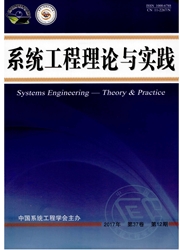

 中文摘要:
中文摘要:
在异质产品市场的国内外双寡头销售商垄断销售背景下,本文借助Hotelling模型研究了概率销售和传统销售策略作为决策变量的动态博弈演化过程,系统演化的结果表明零售商策略的选择受消费者对概率销售的认同程度以及产品差异程度的双重影响,同时兼顾不同类型消费者群体的需求:当消费者对概率产品的认同度足以弥补产品差异的损失时,消费者会选择概率产品,否则消费者会选择传统销售产品;对于一些不确定群体以及对概率销售完全不消费群体等特殊群体的消费者采用传统销售和概率销售相结合的灵活销售策略.本文的结果对概率销售理论研究具有一定的指导意义,并为概率销售实践提供了理论依据.
 英文摘要:
英文摘要:
Under duopoly retailers controlling products selling background in differentiated-quality product markets, we analyse the strategies of duopoly retailers with probabilistic selling (PS) or traditional selling (TS), by using Hotelling model and dynamic evolution game theory. The results show that duopoly retailers strategy choice are affected by the recognition level of consumers for probabilistic selling and the degree of difference between differentiated-quMity products as well as considering other special type consumers' demands. That is if the recognition level of consumers for probabilistic products are big enough to make up for their the difference degree between the products, then consumers will choose probabilistic product; otherwise, the consumers will choose traditional products. The retailers should adopt to mixed strategies for the uncertain consumers, the consumers who don't consume probabilistic products completely and other special type consumers. These results have some guiding significance for PS practices.
 同期刊论文项目
同期刊论文项目
 同项目期刊论文
同项目期刊论文
 期刊信息
期刊信息
